15 Common Homeowner Mistakes You Didn’t Realize You Can Be Fined For

When it comes to being a homeowner, you may thinking owning a home gives you all the power. But that’s not always the case. Cities and local home owner associations (HOAs) can make rules and guidelines for your home, from dictating how tall your grass can be to what you can have parked outside your house—and breaking these rules could get you slapped with a hefty fine. Guidelines change depending on the city or HOA, so it’s best to read up on your local rules when you first move into a home. But if you’re curious about some of the most common homeowner fines you could be hit with, we’ve laid them out for you.
1
Having a moving truck parked outside your house

In the process of moving or remodeling your home? Be careful where you leave that moving truck or dumpster: If you’re not following guidelines for your area, you could be fined.
“Homeowners are frequently caught off guard by fines for having moving trucks or containers—moving pods or dumpsters—parked out front their houses,” says Ryan Carrigan, co-founder of moveBuddha, a website that helps people plan their moves online. “Many HOAs limit the amount of time and sizes of moving trucks, moving containers, or dumpsters that can be parked outside a house.”
2
Having too many vehicles
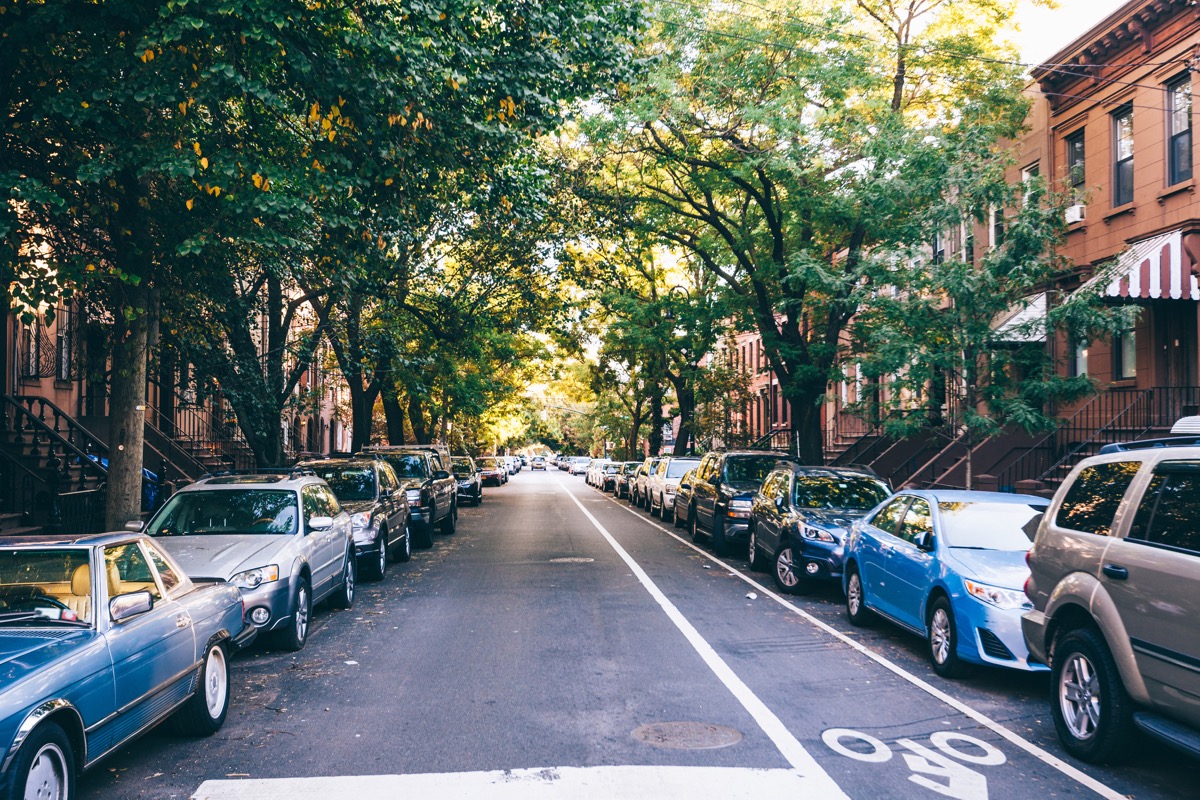
The number of vehicles your household has is not often a concern many homeowners think about, says Ashley Baskin, licensed real estate agent and advisory board member for Home Life Digest.
Most people “believe that they can have as many cars as they would like,” Baskin says. “However, many associations limit the number of vehicles in the community. There are also often strict parking rules, both for residents and their guests.”
3
Cutting down a tree
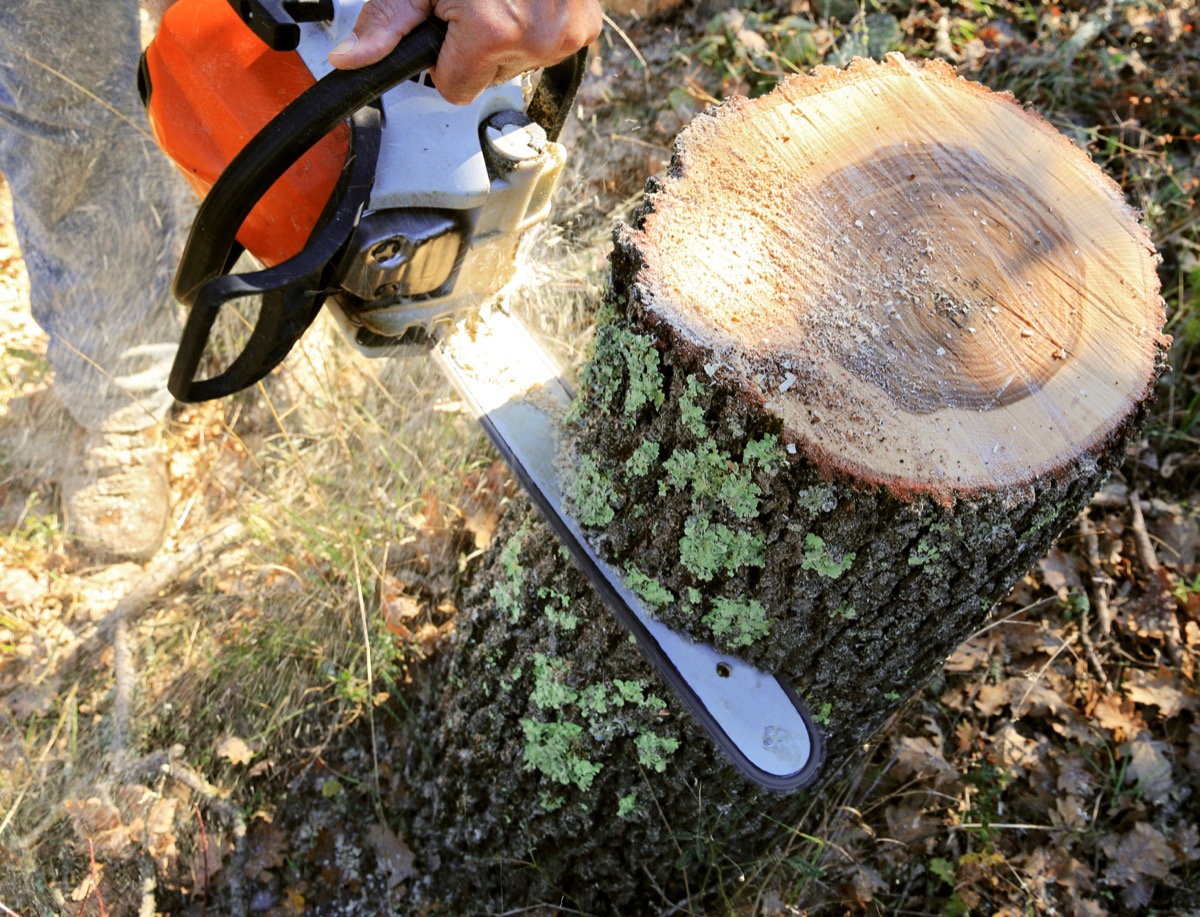
Watch out before you cut any trees on your property. Warren Simmonds, landscape architect with Simmonds & Associates, says many trees are given “Heritage Tree” status if they are of a “certain size or species.” And if you cut one of these down, you can be fined for it.
4
Planting certain plants

Certain cities also have guidelines about what plants you are allowed to plant in your yard. For instance, Simmonds says California usually has rules against planting “prophetic” (otherwise known as fire hazardous) plants like bamboo. Planting these can lead to a fine, not to mention removal.
“Homeowners need to check their county restrictions,” says Simmonds. “Usually counties have a checklist somewhere online, often on the fire district website.”
5
Not cutting your grass

Bryan Clayton, CEO of lawn care company GreenPal, recalls a scenario where a homeowner went out of town for four weeks and during that time, the lawn mowing service she had used went out of business. With the warmth and rainfall in Tennessee, her grass had grown to be over 24 inches tall while she was away. When she returned, she was greeted with fines from both her HOA and the city for having grass that was too tall.
“The fines were over $250, and if she didn’t have somebody mow her yard within the next seven days, the fines were set to double,” he says. Clayton’s company “was able to get somebody out to mow her yard the next day, but more and more this is starting to become common with homeowners associations and municipalities as a way to drive revenue collection and maintain property values.”
6
Putting a fence up
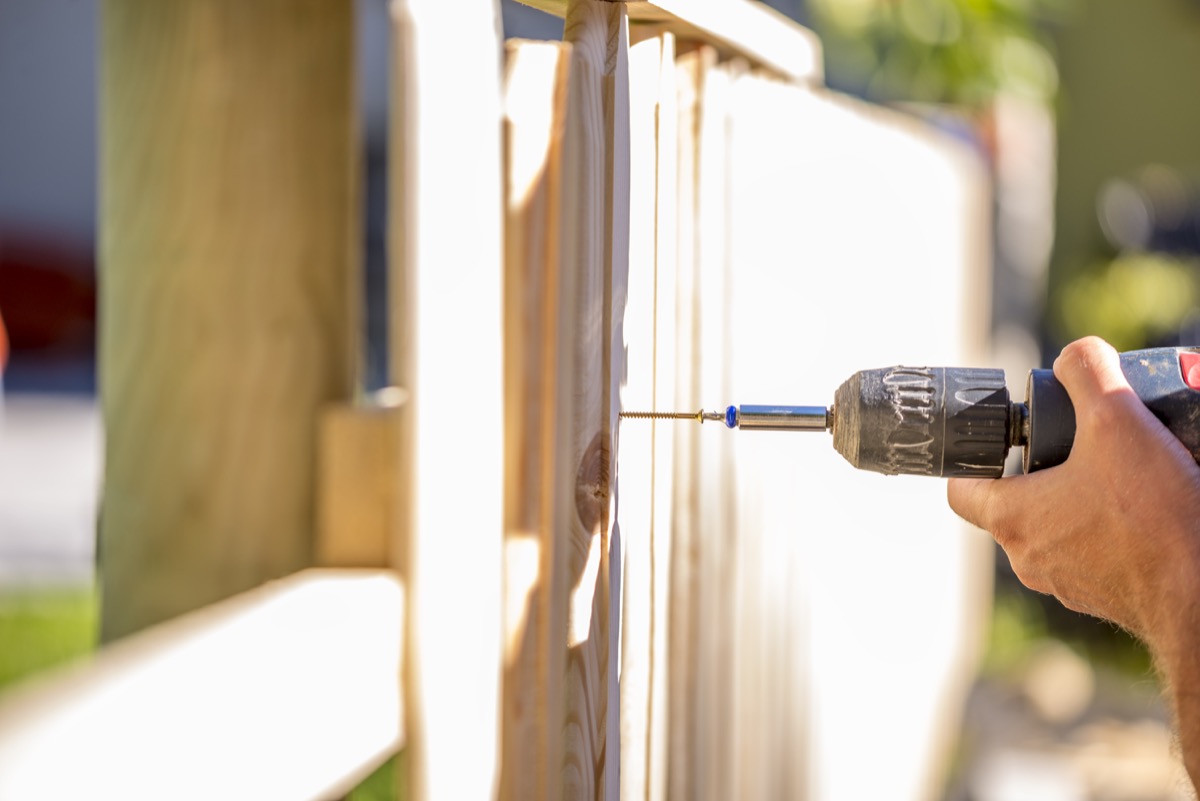
Sure, putting up a fence can be beneficial to your home—it allows extra privacy to your home and yard. However, it may not be something you can actually do.
“Putting up a fence around your property may result in a fine if it is not done in accordance with regulations of your HOA or neighborhood,” says Melanie Hartmann, owner of Creo Home Buyers, a house buying company in Maryland.
7
Changing your roof color
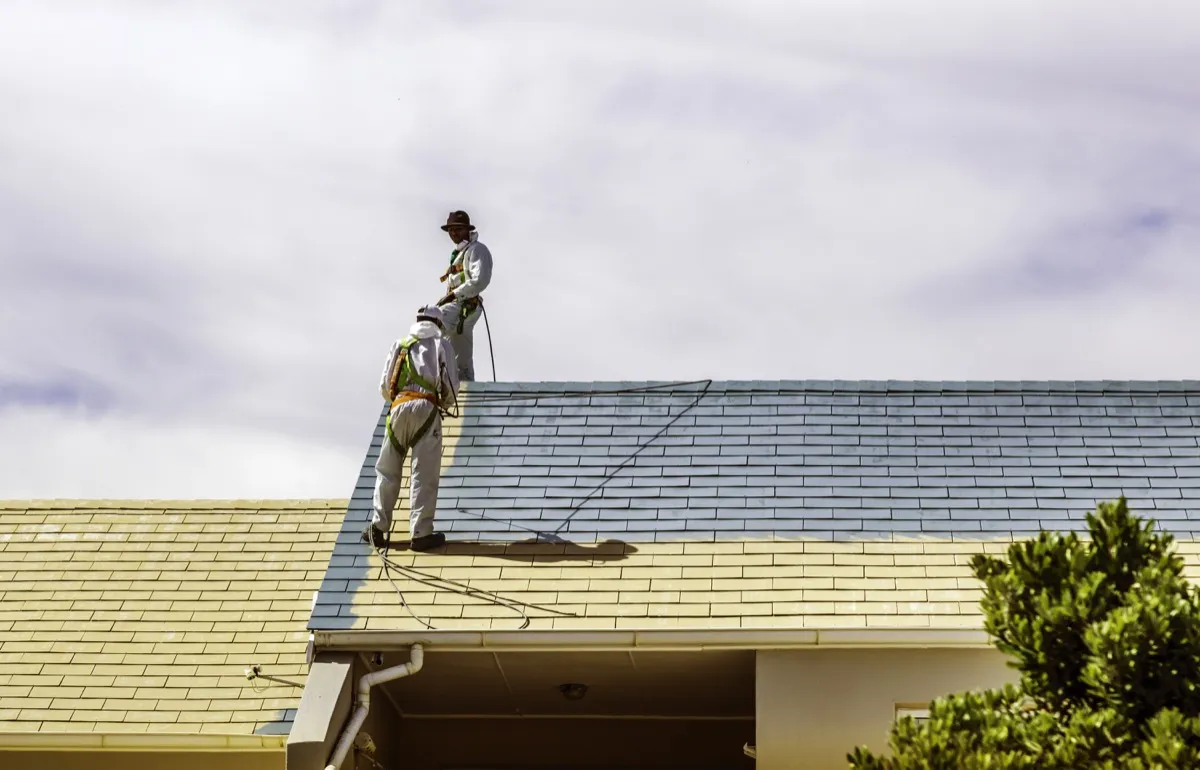
Many HOA regulations actually have rules on roof color, and you can “potentially be fined” if you change your roof color to a color that isn’t allowed, according to Mark Soto, a roofing contractor based in Wisconsin.
“A lot of people tend to change the color of their roof when getting a roof replacement to better match their house. The issue is that a lot of HOA agreements contain architectural standards that must be followed by homeowners where they specifically mention what colors are allowed for home roofs,” he says. “In fact, most HOA regulations even have bylaws that state that roof replacements must be approved by the board, which is something that a lot of homeowners don’t know about and which can end up costing them thousands of dollars.”
8
Changing your home’s exterior
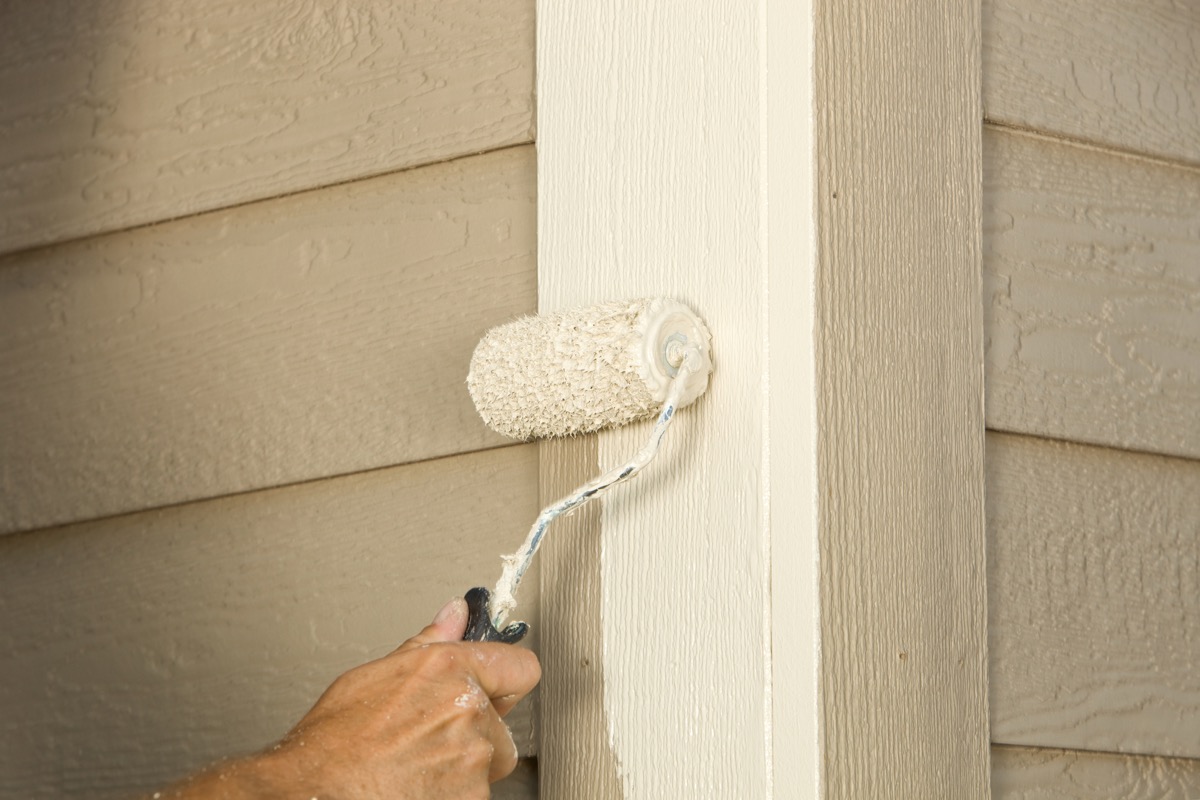
Your roof isn’t the only part of your home you need to worry about. HOAs are often “picky” when it comes to your home exterior walls, as well, says Marty Basher, home improvement specialist with Modular Closets.
“HOAs can fine homeowners for painting if their houses are an unapproved color, peeling and chipping, or anything that violates the signed agreement between homeowners and the HOA,” says Basher.
9
Subleasing your property

David Reischer, real estate lawyer and CEO of LegalAdvice.com, notes that subleasing is a “quick way to get someone to take over your lease,” but it’s also a decision that has a risk of significant penalties or fines.
“Many states and local municipalities have laws that regulate a tenant’s right to sublease,” says Reischer. “It is therefore critically important for a tenant that wants to sublease their apartment to learn whether local laws allow for a tenant to sublease their apartment before doing so.”
10
Allowing short-term rentals

Having someone take over your lease isn’t the only thing that could get you hit with a fine, however. Even short-term rentals, like when you’re on vacation, may be subject to the same rules.
“In a world where quick cash can be made with apps like Airbnb, many homeowners turn to short-term rentals when they are leaving their home,” says Baskin. “However, many associations do not allow this use and will fine anyone who rents out their home.”
11
Installing new windows

Many homeowners want to make home improvements to their home after they’ve moved in. But not knowing your city guidelines before enacting even the smallest changes may make things harder on you.
“Most people know they need a permit before building a new shed or garage on their property,” says Lisa Torelli-Sauer, editor at Sensible Digs, a website dedicated toward helping people make smart home investments. “Fewer people realize that even less obvious home improvements, such as new windows or plumbing, may also require a permit.”
12
Donating old things on your curb
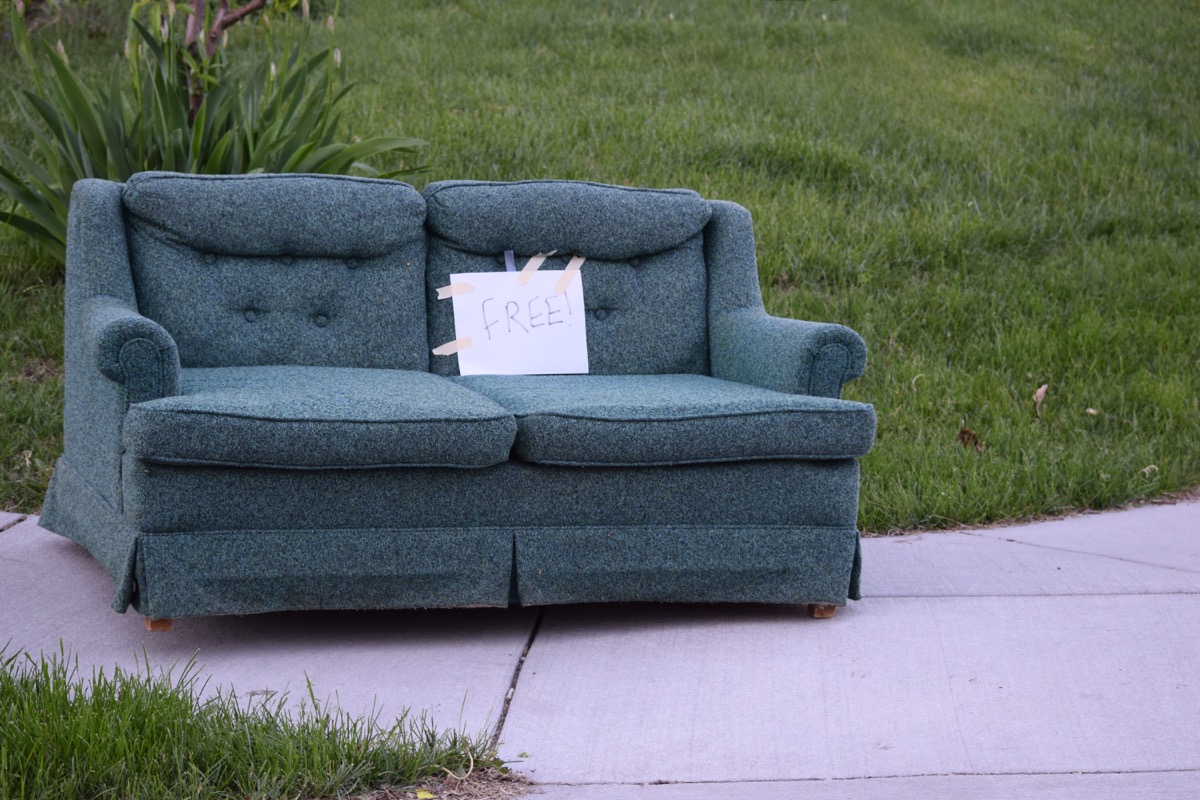
Over time, you may accumulate things in your home that you no longer want. And instead of throwing these things away, you may think it would be better off giving them away for free—but be careful where you leave these donations.
“It’s tempting to take a desk, chair, couch, or table you no longer want and simply place it on your front lawn with a ‘free’ sign attached, but you better check your city or HOA ordinances before you do that, as it may end of costing you money,” says Basher.
13
Taking your trash out too late
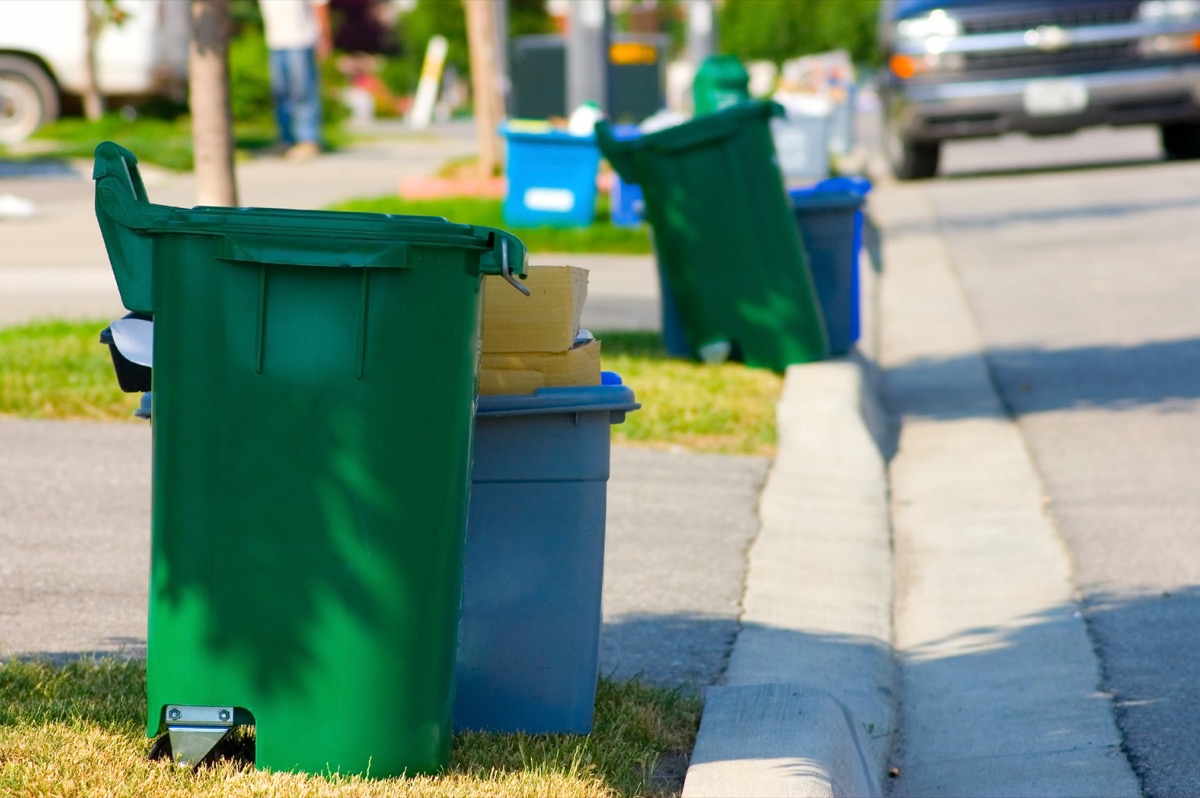
HOAs can often be like a strict mom when it comes to taking out the trash. David Bakke, home expert with Dollar Sanity, says many HOAs will fine you for “putting out your trash cans too late” or even for “bringing them in after the time limit.”
And while this may seem like just a scary tale, it does happen. In fact, WKYC News reported that Cleveland residents were fined more than $400,000 for trash violations from 2018 to 2019. The city law apparently allows citations for many things, including for “having bags outside the can, mixing trash with recycling, and setting out your cans too early or leaving them out too late.”
14
Putting up holiday decorations

In the mood for some holiday spirit? Check with your HOA before you get too in the spirit. Peter Miller, a professional landscaper and founder of Gardening Stuffs, says many associations have rules against what can be left outside of the home in the plain sight, even when it comes to bicycles and skateboards. But he says many homeowners don’t realize these rules also extend to “decorating your home’s exterior with holiday decorations.”
15
Or leaving them out too long
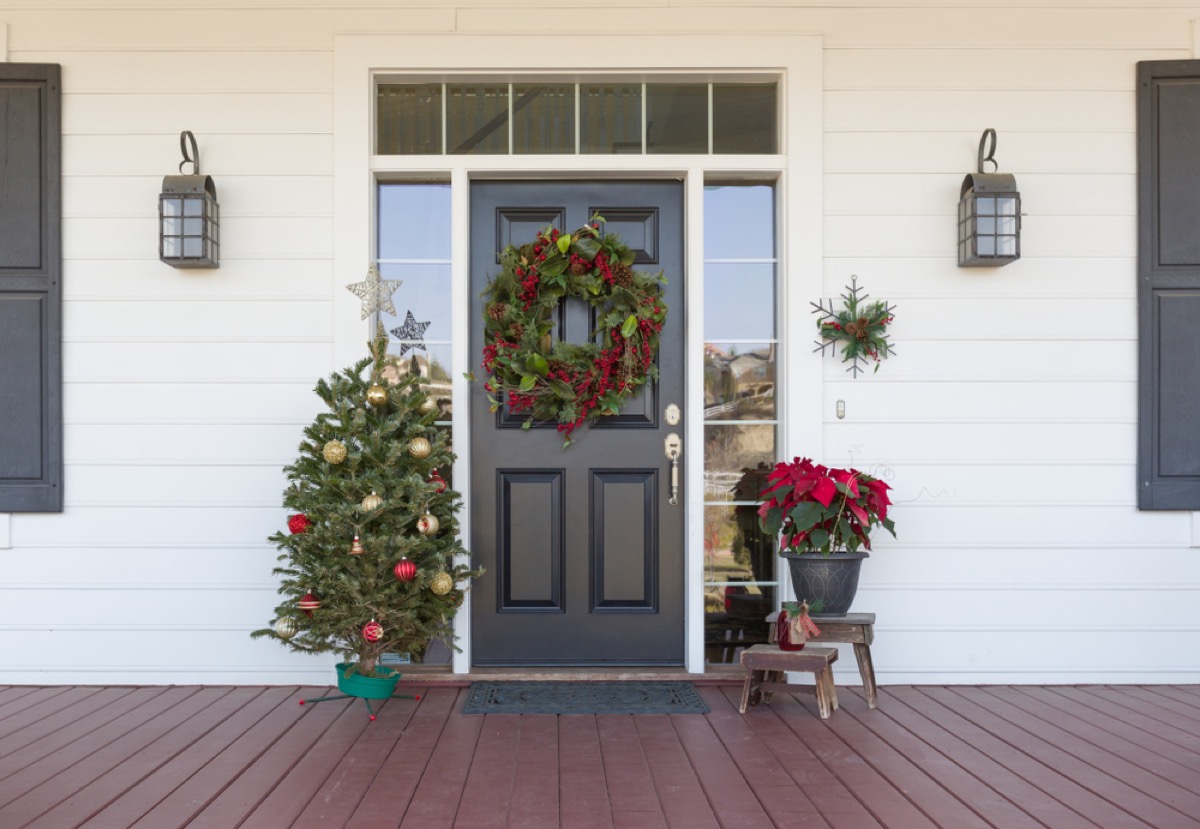
If your association does allow you to display holiday decorations, you may think you’re in the clear. However, many HOAs also have regulations for how long you can keep holiday decorations up.
“Some people proudly display their holiday spirit from the beginning of November to the end of January,” says Basher. “However, more often than not, homeowners are given a timeframe for decorations—anywhere between 10 and 20 days before and after a holiday.”